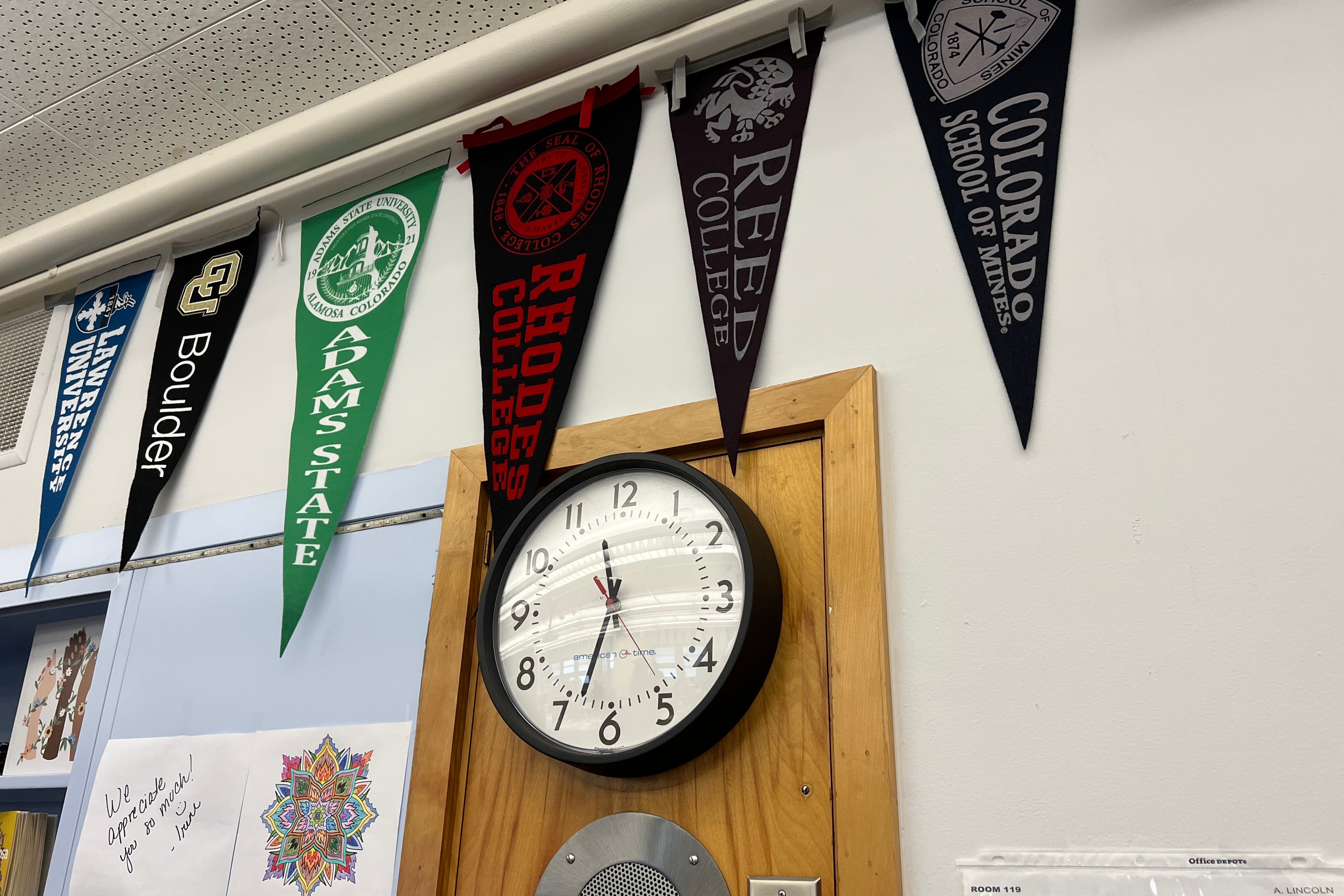When Colorado officials ordered Denver’s Lincoln High School to work on a turnaround plan to improve the achievement of its students, no one knew schools would be interrupted by the pandemic just a month later.
But the school pushed forward with its improvement plan, despite the switch to remote learning and a more recent influx of new students. And although the school’s test scores and state rating remained low this year, State Board of Education members praised Lincoln’s progress Wednesday and agreed to give its leaders more time to boost its rating.
So far, school leaders have completed a leadership program with the University of Virginia, created a new ninth grade academy, and rolled out new career-focused pathways for students. A program called PTECH allows students to stay in high school for a fifth or sixth year to earn an associate’s degree in business. Lincoln’s first participants are graduating this spring.
Those changes were made possible partly by Lincoln’s status as an “innovation school,” a model allowed for state-ordered improvement plans that gives the school autonomy from some district and state rules and provisions of the teachers union contract.
Lincoln was one of just two Denver schools with state-ordered improvement plans. The other, Manual High School, received an improved rating this year. If it sustains that rating for one more year, it can be freed from its state orders.
Lincoln, on the other hand, has not improved and had to have its plan reviewed this year. The state board unanimously approved a district plan on Wednesday that will keep Lincoln as an innovation school while the state monitors its progress.
If the school doesn’t manage to earn a higher state rating by 2026, then it will have to return to the state for another hearing.
When a school receives several years of low ratings, the state is obligated to order an improvement plan, which can include requiring external management, turning the school into a charter or even closing it. Recently, State Board members have stayed away from those drastic options. One alternative has been to grant innovation status.
With Lincoln, State Board members said they were encouraged that school and district leaders’ assessment of the school and its ability to improve mirrored the feedback from the community, the Colorado Department of Education staff, and an external state review panel.
“I’m constantly reminded of, we leave a school alone, great things happen,” said State Board member Angelika Schroeder. “What you’re offering is something really special.”
Under the district’s plan, Lincoln will continue to expand its offerings for workforce development while students are in high school.
The school will also focus more in the coming years on attendance. Currently, the average attendance rate at Lincoln is 83%, up from 81% last year.
Principal Antonio Esquibel said attendance rates are low among new immigrant students who are facing other challenges that make it difficult to attend school, such as housing instability.
School leaders also talked about the challenges they’ve faced most recently in supporting a rise in students who are new to the country. Lincoln High School houses one of Denver’s newcomer centers, which help students who are new to the country adjust to life in an American high school.
Esquibel said the school enrolled another six new students Wednesday.
He said the school has added staff, and is now doing an orientation every Monday for new students and their families. The orientation introduces them to Lincoln and the U.S. school system, and to living in southwest Denver.
As part of the improvement plan, the school will also expand its efforts to help all teachers accommodate their lessons for English learners through sheltered instruction, where teachers can adjust lessons to incorporate help for English learners throughout the day.
About half of Lincoln’s roughly 1,000 students are identified as English learners, but about 75% identify Spanish as their first language. With so many arriving students who are new to the country, those percentages are rising.
“Every teacher has to be a teacher of English learners at Lincoln,” Esquibel said.
The school also uses a model it calls TNLI that offers students Spanish instruction and then slowly moves toward more English instruction, allowing students to remain bilingual, Esquibel said.
“We know if given the right supports and resources, our students flourish,” he said.
Yesenia Robles is a reporter for Chalkbeat Colorado covering K-12 school districts and multilingual education. Contact Yesenia at yrobles@chalkbeat.org.





